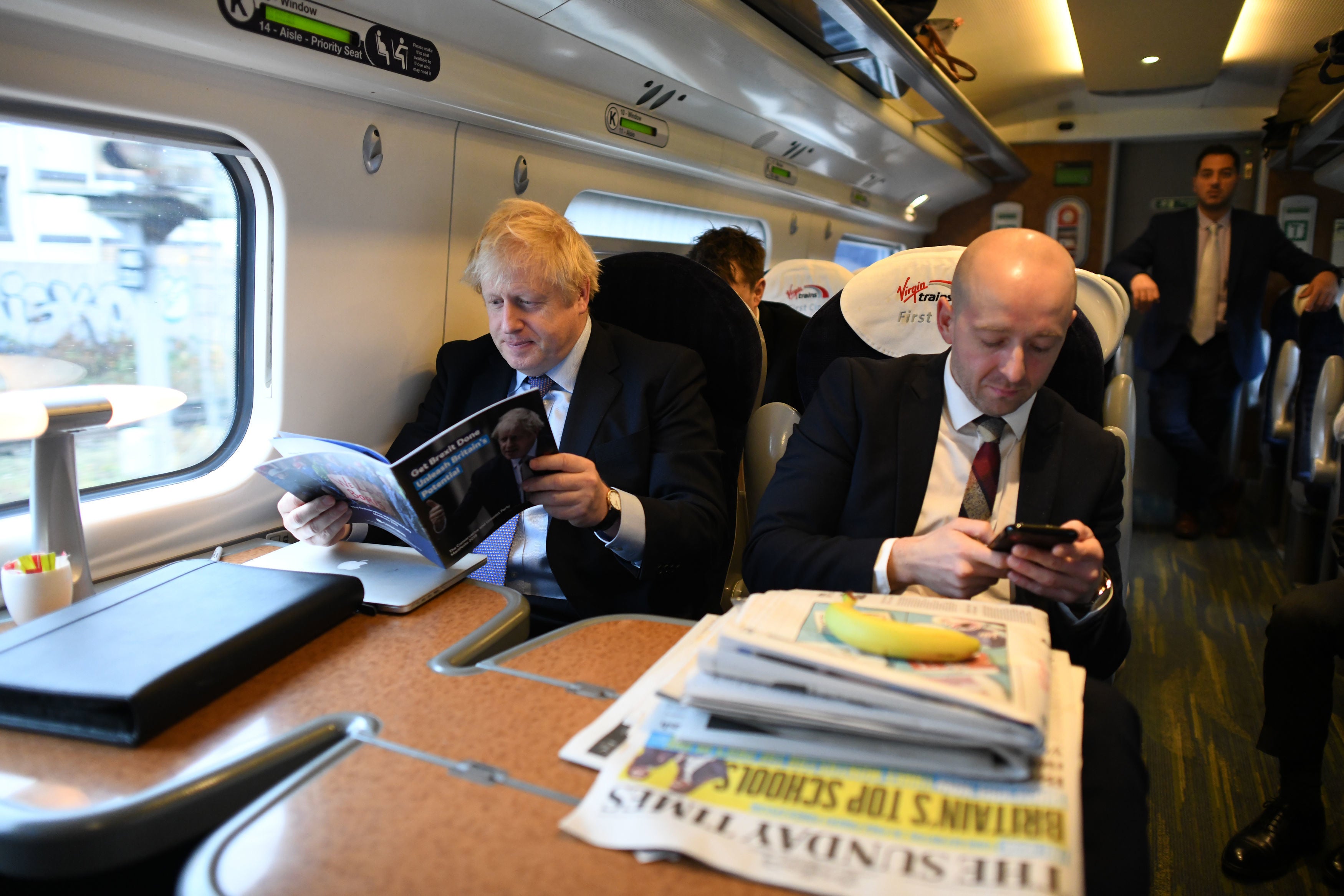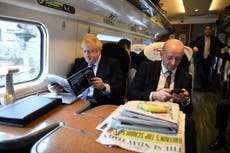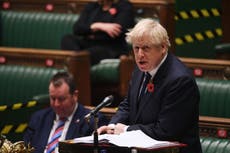The manner of Lee Cain’s departure from Downing Street is deeply embarrassing for Boris Johnson
The whole affair leaves the impression that our prime minister struggles to make a decision and those who work closely with him believe he needs a shove in order to do so


The departure of Lee Cain as 10 Downing Street’s director of communications is curious on many levels. Not least, it tells us a great deal about the decision-making capabilities of the prime minister and how those capabilities are perceived by those around him.
It has been an open secret for some time that the operation inside No 10 is dysfunctional. A prime minister needs someone they can trust, who is respected by ministers and the wider parliamentary party, and is focused on keeping the show on the road – spotting problems, diffusing rows, ensuring that necessary decisions are taken. In my time in the cabinet, Gavin Barwell performed this task brilliantly for Theresa May in very difficult circumstances.
Boris Johnson, more than most prime ministers, needs someone to perform this task. However, neither of his senior advisers – Eddie Lister and Dominic Cummings – fits the bill. The former is set to leave Downing Street shortly. The latter has a reputation for only doing what he is interested in, which is not a luxury available to an effective chief of staff.
Consequently, it was decided that a powerful new post would be created within No 10. The difficulty was that one powerful new post had already recently been created, with Allegra Stratton set to host the government’s televised briefings. This appointment was seen as a signal that the prime minister wanted to move away from the combative, Vote Leave approach to governing.
This left the existing director of communications, Vote Leave’s Lee Cain, out in the cold, with a combination of the new chief of staff and Ms Stratton performing much of his previous role. At which point, someone came up with a solution to this uncomfortable situation – make Cain the chief of staff. This suggestion emerged when Wednesday’s edition of The Times included a story that Cain was “poised” to take the role and that this would “entrench the influence of No 10’s Vote Leave faction”.
To put it mildly, this did not land well and a succession of ministers, MPs, special advisers and other figures inside No 10 made it clear that such an appointment would be a mistake. By Wednesday evening, Cain had resigned.
So what happened? One theory is that the prime minister had decided to appoint Cain but was taken aback by the internal opposition and changed his mind. The alternative theory is that Cain and the prime minister had discussed the appointment but it had not been finalised. However, those keen on the appointment of Cain sought to bounce the prime minister into a decision by briefing a newspaper that it was a done deal.
Neither theory does the prime minister much credit. But if it really was the case that those who have worked very closely with him believe that the best way to get a decision out of him is to brief the press in order to pressurise him into a decision, it suggests that they have a low opinion of his ability to reach a conclusion and his susceptibility to go along with whatever a newspaper has printed.
A parallel can be drawn with the announcement of the current Covid lockdown, where it appears that someone who favoured tightening restrictions rushed out news that this was going to happen before the prime minister had the opportunity to change his mind.
The whole affair leaves the impression that our “have cake and eat it” prime minister struggles to make a decision. At the very least, those who work closely with him believe that he needs a shove in order to do so. At a time when big decisions are needed from Johnson, in particular on Brexit, this is not the leadership the country needs.
David Gauke is a former justice secretary. He was also MP for South West Hertfordshire from 2005 to 2019, first representing the Conservative Party and latterly as an independent
Join our commenting forum
Join thought-provoking conversations, follow other Independent readers and see their replies
Comments


Bookmark popover
Removed from bookmarks